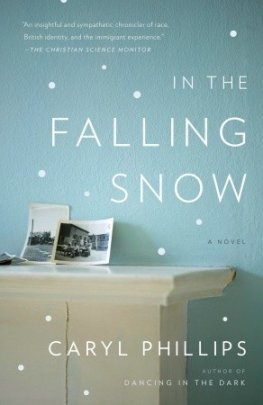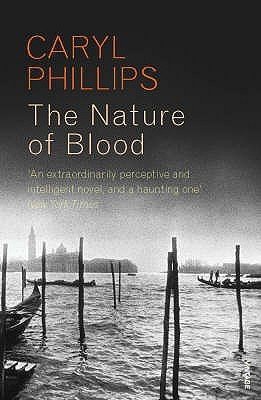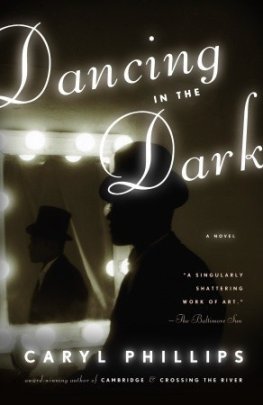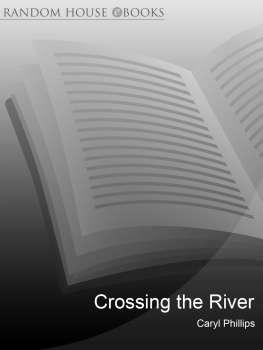Caryl Phillips - Cambridge
Here you can read online Caryl Phillips - Cambridge full text of the book (entire story) in english for free. Download pdf and epub, get meaning, cover and reviews about this ebook. year: 2009, publisher: Vintage Digital, genre: Prose. Description of the work, (preface) as well as reviews are available. Best literature library LitArk.com created for fans of good reading and offers a wide selection of genres:
Romance novel
Science fiction
Adventure
Detective
Science
History
Home and family
Prose
Art
Politics
Computer
Non-fiction
Religion
Business
Children
Humor
Choose a favorite category and find really read worthwhile books. Enjoy immersion in the world of imagination, feel the emotions of the characters or learn something new for yourself, make an fascinating discovery.
- Book:Cambridge
- Author:
- Publisher:Vintage Digital
- Genre:
- Year:2009
- Rating:3 / 5
- Favourites:Add to favourites
- Your mark:
- 60
- 1
- 2
- 3
- 4
- 5
Cambridge: summary, description and annotation
We offer to read an annotation, description, summary or preface (depends on what the author of the book "Cambridge" wrote himself). If you haven't found the necessary information about the book — write in the comments, we will try to find it.
Cambridge — read online for free the complete book (whole text) full work
Below is the text of the book, divided by pages. System saving the place of the last page read, allows you to conveniently read the book "Cambridge" online for free, without having to search again every time where you left off. Put a bookmark, and you can go to the page where you finished reading at any time.
Font size:
Interval:
Bookmark:
Caryl Phillips
Cambridge
FOR ELIZABETH
PROLOGUE
England.
The ship was ready to sail. She remembered.
A tall carriage drawn by a pair of horses bedecked with shiny harnesses. Father returned. What now? And daughters sacrificed to strangers. A woman might play upon a delicate keyboard, paint water-colours, or sing. Her father conducted himself as a stern audience. He stood before her, his legs slightly apart, his hands clasped behind his back. She sat upright, her hands knitted together in her lap. A woman must run the household, do the accounts, command the domestic servants, organize the entertaining, but her relations with her children were to be more formal. (Hence the governess and the nursemaid.) She remembered her mother, who had died when she was a young girl. Her mind carried a vignette of her mother in her matutinal pose upon the chaise-longue. It seemed so long ago now. It must be difficult for Papa to understand the heart of a woman without the refining influence of a wife. Papa's decision was that she should travel to his West Indian estate and on her return marry Thomas Lockwood (who was ably provided for). She looked into her father's eyes and thought she saw his pity for the daughter who was being offered a fifty-year-old widower with three children as a mode of transportation through life. She spoke no words. She locked eyes with him, as though to drop her gaze would be to end the years of painful communication they had sought to construct. Still she spoke no words. Papa, I have buried feelings. She listened as her voice unspooled in silence. Feelings locked deep inside of me, hopes that demand that I must not abandon them for years of cold fleshiness made intimate only by the occasional brushing of lips against cheek. Do you understand? He gazed imperiously at his daughter. She saw now the determination to insure his own future. Lowering her eyes she fell into a gloomy study. The rude mechanics of horse-trading. She had once overheard her father insisting that sensible men should only trifle with these children of a larger growth. And then he laughed. To reside under the auspices of a 'petticoat government'! But she had never doubted that Papa loved her. That evening he planted a light kiss upon her forehead. For a few moments it began to live a life of its own. Then, as ever, it faded. And now she simply waited for the ship to haul anchor. The truth was she was fleeing the lonely regime which fastened her into backboards, corsets and stays to improve her posture. The same friendless regime which advertised her as an ambassadress of grace. Almost thirty. Too old to be secretly stifling her misery into lace handkerchiefs.
The ship was ready to sail. She remembered.
England.
The truth.
I
We are now on board and can truly claim to be a part of this wooden society. Isabella and I are heavily fatigued but worse than this we cannot but be appalled by the condition of what will pass for our home during the weeks ahead. In short, the cabin is in a state of disrepair. This is a perfectly chaotic world of men and freight, but were they not forewarned of our imminent arrival? I upbraided the captain, a rough-hewn brute of a man, no doubt the veteran of much trafficking. He bared his stumpy tobacco-stained teeth presumably a greeting in his private language and feigned surprise that we should be concerned with such trifles. Furthermore, he made little effort to disguise his disapproval of this sudden inbreak of distressed women. I pray that he be discovered the worst fellow on the whole property, for any more detestable than he I hope I shall never have to suffer.
In the coming weeks and months my observations, for good or ill, shall be set forth in a journal. It is hoped that by the time I return to these beloved shores I shall have a record of all that I have passed through, so that I might better recount for the use of my father what pains and pleasures are endured by those whose labour enables him to continue to indulge himself in the heavy-pocketed manner to which he has become accustomed. There is, I suspect, small virtue in leaving one's creatures to the delegated dominion of some overseer or manager. Perhaps my adventuring will encourage Father to accept the increasingly common, though abstract, English belief in the iniquity of slavery. It is these days heard abroad, and argued with much vigour, that the lordship over one's own person is a blessing far beyond mere food and shelter. However, to many of these lobbyists, slavery is simply a notional term to be equated with whatever propaganda they have read in prose or verse. It is therefore unsurprising that despite the outcry raised by their communal voices, there remain many persons scattered throughout our kingdom who inwardly cling to their old prejudices, and secretly mourn over actual or designed reforms.
And so I prepare to leave England which, with all its faults, still bears the title of 'my home'. My heart is heavy and even the prospect of new and more beautiful scenes cannot altogether relieve my sadness.
O my country, I have no pride but that I belong to thee, and can write my name in the muster-roll of mankind, an Englishman. If thou wert ten times more cloudy, and rainy and bleak, I should still prefer thy clouds and thy storms to the spicy gardens of the Orient.
The chamber to which we are confined is no more than six or seven feet wide with a narrow plank this is the only way I can describe it protruding from each side wall, and a thin gap in the middle which barely allows one to describe a full circle without bruising knees and legs against these beds. Attached to each bed are straps of rope. We have been informed that these are to lash us in of an evening irrespective of the weather appearing clear or inclement.
Sea terms: WINDWARD, whence the wind blows; LEEWARD, to which it blows; STARBOARD, the right of the stern; LARBOARD, the left; STARBOARD HELM, when you go to the left; but when to the right, instead of larboard helm, HELM-A-PORT; the TILLER, the handle of the rudder; the CAPSTAN, the weigher of the anchor; the BUNTLINES, the ropes which move the body of the sail, the BUNT being the body; the BOWLINES, those which spread out the sails and make them swell.
Out on deck Isabella and I surveyed the dingy sky. It promised rough sea, sudden squalls and a stormy passage. Littered about us were a company of squealing porkers and their suckling infants, whom I assumed would provide us with some sustenance during the voyage to come. There is with us a small carrot-headed cabin-boy who has brought with him for companionship a pit-bull terrier, whose legendary ferociousness of spirit is likely to be tried by the larger and more exuberant porkers. One can only hope that the terrier is able to fend for itself, for already my Isabella has been obliged to dispense saline drops to the boy and accompany him back to his cot. This voyage is to be his debut, and if custom is maintained it will no doubt be the first of many, until merely a few years hence he will have sea legs, as opposed to land legs, and find it difficult to reside in a world that is devoid of motion.
Isabella awoke at the dead of night and accused me of betrayal, prosecuting me with the evidence that I had managed to achieve sleep in this incommodious hole to which we have been condemned. She complained of feeling the motion sickness, of throbbing temples, burning head, freezing limbs, feverish mouth and a nauseous stomach. There was little that I could do except listen to her pitiful moaning and study the sound of the men's feet moving backwards and forwards at the helm, as the ship was now fully engaged about her business of traversing the ocean. Moments later a cock, the harbinger of day, informed me and others unfortunate enough to lie awake that it was a new dawn. Much as I desired a dish of tea, I found it impossible to prevail upon the ailing Isabella to furnish me with such a luxury. I decided to venture in search of the cabin-boy, or some other assistant, who might help me slake my durst, and I abandoned my poor servant to her cot.
Font size:
Interval:
Bookmark:
Similar books «Cambridge»
Look at similar books to Cambridge. We have selected literature similar in name and meaning in the hope of providing readers with more options to find new, interesting, not yet read works.
Discussion, reviews of the book Cambridge and just readers' own opinions. Leave your comments, write what you think about the work, its meaning or the main characters. Specify what exactly you liked and what you didn't like, and why you think so.









